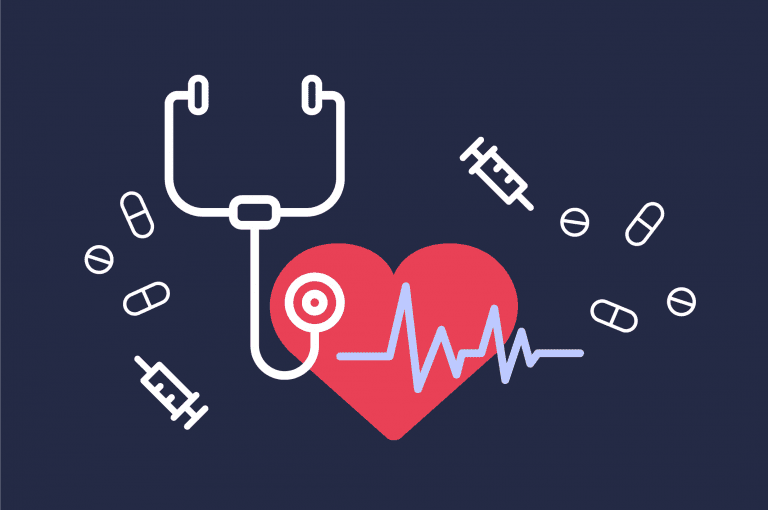How Does Good Sleep Affect Immunity and Daily Energy?

benefits of good sleep،Sleep isn’t just downtime. It’s an active, restorative process that powers your mind, fuels your body, and strengthens your defenses Over the last few decades, researchers have uncovered how deeply intertwined sleep and immunity are, and how quality rest impacts daily energy, resilience against illness, and long-term health.
When you cut sleep short, the consequences ripple through your body: lowered resistance to infection, poor recovery, and reduced mental clarity. On the other hand, prioritizing rest can significantly boost immunity, improve energy levels, and protect against chronic disease.
This article explores the benefits of good sleep, the immune system and sleep connection, and why consistent rest may be one of the most powerful health tools we have.
The Immune System: Your Body’s Defense Network
The immune system is your built-in defense mechanism. It heals wounds, fights infections, and guards against chronic diseases. Its two main arms—innate immunity (your first line of defense) and adaptive immunity (targeted protection learned over time)—work in balance to keep you safe.
-
Innate immunity: Immediate protection against invaders.
-
Adaptive immunity: Memory-based defense that gets stronger after exposure, like when vaccines train your body to recognize viruses.
White blood cells, cytokines, and signaling proteins all play critical roles These components don’t just fight illness—they also rely heavily on quality sleep to function properly.
How Sleep Affects the Immune System
Researchers have shown that sleep and immunity have a bidirectional relationship. When you’re sick, your immune system pushes you to rest more, helping recovery. At the same time, consistent sleep strengthens immunity, making you less likely to get sick in the first place.
What happens during sleep?
-
Production of cytokines, proteins that guide immune cells.
-
Strengthening of immune memory, teaching your body how to respond to pathogens.
-
Increased deep sleep (NREM stage 3) during infection, conserving energy so the immune system can work harder.
-
Regulation of inflammation so it doesn’t overwhelm the body.
Without enough rest, the immune system becomes unbalanced, leaving you vulnerable.
Sleep and Inflammation
Inflammation is a natural response that helps heal injuries and fight infections. But too much inflammation, especially when chronic, is linked to heart disease, diabetes, and depression.
Sleep helps regulate this balance. At night:
-
The body increases inflammation in a controlled way to fight threats.
-
As morning approaches, inflammation tapers off, protecting tissues from constant stress.
When sleep is cut short, this cycle is disrupted, creating persistent low-grade inflammation—a hidden driver of many chronic diseases.
Lack of Sleep and Illness
Not getting enough rest is like leaving the front door open to germs. Studies reveal that:
-
People sleeping fewer than 6–7 hours a night are more likely to catch colds and flu.
-
Hospital patients deprived of sleep recover more slowly.
-
Sleep-deprived people respond less effectively to vaccines.
This is why lack of sleep and illness often go hand in hand. Without adequate rest, your immune system simply can’t keep up.
Sleep and Vaccine Effectiveness
Vaccines train your adaptive immunity to recognize future threats. But their effectiveness depends on whether your immune system has the energy and resources to learn.
Research shows:
-
People who skip sleep after vaccination develop weaker immune responses.
-
Habitual poor sleepers may need extra doses to achieve the same protection.
Put simply: getting good sleep around vaccination time boosts immunity and ensures stronger protection.
Sleep and Allergies
Your circadian rhythm—the body’s internal 24-hour clock—also regulates allergy responses. When it’s disrupted by irregular sleep, allergic reactions can become worse.
In fact, one study showed that sleep deprivation increased the severity of peanut allergies, lowering the threshold for reactions by nearly half.
Regular, restorative sleep keeps allergic responses under control, lowering the risk of flare-ups.
Sleep and Chronic Disease
Consistent poor sleep doesn’t just weaken daily energy—it raises the risk of long-term conditions, including:
-
Cardiovascular disease (due to chronic inflammation and high blood pressure).
-
Diabetes (caused by disrupted glucose metabolism).
-
Neurodegenerative disorders (linked to poor immune regulation and brain inflammation).
-
Depression (as chronic inflammation and poor rest harm mental health).
This is why experts stress the importance of sleep for health across both body and mind.
How Sleep Boosts Daily Energy
While much focus is on immunity, sleep also transforms how you feel every day. Adequate rest:
-
Enhances focus and memory.
-
Improves physical stamina and recovery.
-
Regulates hormones tied to appetite and stress.
-
Prevents “brain fog” and irritability.
This explains why sleep and daily energy go hand in hand. When the immune system is balanced through proper rest, you naturally have more energy for work, exercise, and relationships.
How the Immune System Affects Sleep
Interestingly, the connection runs both ways. The immune system also changes your sleep:
-
During infection, you feel more fatigue so the body can devote energy to healing.
-
Fever alters sleep stages, boosting deep sleep while reducing REM.
-
Cytokines promote sleepiness as part of the recovery process.
This explains why you sleep more when sick—it’s your body’s way of speeding up healing.
Can Sleep Deprivation Make You Sick Long-Term?
Unfortunately, yes. Short-term sleep loss makes you more likely to catch colds, but long-term deprivation leads to chronic inflammation that slowly damages tissues and organs.
This persistent stress has been tied to:
-
Higher cancer risk
-
Weaker recovery from injury
-
Elevated pain sensitivity
-
Ongoing fatigue despite rest
Unlike other stressors, the immune system does not adapt to lack of sleep—the damage simply accumulates over time.
How to Improve Sleep and Strengthen Immunity
The good news: you can take steps today to improve both sleep and immunity.
Practical Tips for Better Sleep Hygiene
-
Stick to a consistent sleep schedule.
-
Avoid screens and bright light before bed.
-
Create a cool, dark, quiet sleep environment.
-
Limit caffeine and alcohol intake.
-
Reserve your bed for sleep and rest, not work.
Additional Support
-
CBT-I (Cognitive Behavioral Therapy for Insomnia): Effective for chronic sleep issues.
-
Relaxation techniques: Yoga, meditation, or tai chi can lower stress and improve rest.
-
Talk to a doctor: If you suspect sleep apnea, insomnia, or another disorder.
By strengthening sleep hygiene, you also boost immunity, improve daily energy, and lower the risk of illness.
The science is clear: how sleep affects the immune system is profound. Quality rest not only prevents illness but also enhances vaccine effectiveness, reduces allergies, balances inflammation, and keeps chronic diseases at bay.
Think of sleep as your body’s nightly reset button. By making it a priority, you give your immune system the tools it needs to defend you—while ensuring you wake up energized and ready to thrive.




